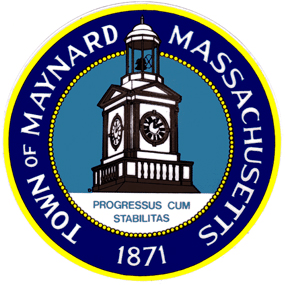
Kevin Sweet, Town Administrator
Municipal Building
195 Main St.
Maynard, MA 01754
For Immediate Release
Saturday, Feb. 27, 2016
Contact: John Guilfoil
Phone: 978-841-9948
Email: john@jgpr.net
Maynard Responds to Elevated Levels of Trihalomethane (TTHMs) in Drinking Water
Water is SAFE for Drinking, Cooking, Bathing and all Other Uses
Town Working with State Officials on Next Steps to Ensure Lower Levels of This Chemical, which is a Byproduct of Water Cleansing Process
MAYNARD – Assistant Town Administrator Andrew Scribner-MacLean is today addressing local residents and members of the news media regarding an elevated level of a chemical that is known to exist in drinking water supplies, created as a result of the normal disinfecting and cleaning processes.
The town’s water supply is safe to drink and use. No boil water order has been issued.
Here is what happened:
- A December 2015 regularly-scheduled quarterly testing of the four active water wells in Maynard resulted in one site having an elevated level of Trihalomethanes (TTHMs).
- The United States Environmental Protection Agency’s standard for TTHMs in drinking water is less than 80 parts per billion (ppb). The December test noted that the site in question contained 89 ppb of TTHMs.
- TTHMs are created as the result of organic compounds reacting with chlorine. Chlorine is used in virtually all drinking water supplies to ensure that the drinking water is clean and free from potentially deadly contamination from bacteria and microorganisms.
- Chlorine is necessary to have safe drinking water. TTHMs are a byproduct of this process, and occasionally, the levels can rise beyond what the EPA says is acceptable.
- Water districts preform hundreds of tests annually on the drinking water they give to the public, and it is careful balancing act to ensure that the water is clean and free of contaminates.
- There is some scientific evidence that suggests that higher than acceptable levels TTHMs may present a health risk. Pregnant women, infants, and women who may become pregnant may be at an increased risk and healthcare providers should be contacted if ther eare concerns.
- The scientific community believes that drinking higher than acceptable concentrations of TTHMs over many years may cause liver, kidney, or central nervous system problems and may present an increased risk of certain cancers.
- In Canada, the standard is 100 ppb, and throughout Europe, the standards range from 30-100 ppb.
Here is some background information:
- Maintaining safe drinking water is a careful balancing act. Health and environmental regulators are far more concerned about untreated water contaminants, like bacteria and microorganisms, which is why chlorine is used to treat drinking water.
- Rather than waiting for the next quarterly state test, Maynard will begin conducting TTHM testing on Monday, and that testing will continue routinely for the foreseeable future.
- Maynard tests water during pumping and before distributing to homes every day of the week. Tests are conducted for iron, manganese, color, chlorine residual level, and PH residual levels. Water cannot leave the plant for distribution without meeting daily standards.
- Chlorine remains in the treated water — as it should — and is at levels far below legal limits (about 1 part per million versus 4 parts per million limit).
- However, organics in the water lines continue to react with the residual chlorine, elevating the TTHMs.
- Reducing chlorine use might offset this, but at the risk of leaving other known bacterial contaminants in the water. That could be less acceptable and perhaps even illegal water.
- Bi-weekly testing is done for bacterial and chlorine residuals at 14 distribution points
- Quarterly TTHM testing is done by the State Department of Environmental Protection at all four pumping locations. It was one of these four that prompted the DEP notification that was recently posted to the town’s website.
Here is what the town is doing:
- While the test was conducted on Dec. 16, MassDEP did not notify the town that there were elevated levels of TTHM until this week. The town is working with the state to ensure that results are delivered in a more timely fashion in the future.
- The state has given the town 90 days to address the TTHM levels.
- The town plans to flush all fire hydrants to reduce organic compounds in the system. This process will begin on Monday.
- Town is meeting with DEP on Monday to look at long-term cause and effect issues and to come up with a long-term strategy
- The two has four pumping wells for the water supply. Two of the wells are deep, and two of the wells are shallow. The town’s water department believes that, because the elevated levels of TTHM were found at one of the shallow wells, improving the filtering processes performed there may minimize organic compounds in the system and reduce TTHM levels.
- The town is considering relying more on the deep wells for a larger percentage of the supply, to further minimize the amount of organic compounds in the system.
- The town will perform an “all call” notification, calling all residents and businesses, informing them directly about the situation.
- Accurate and timely information will also be posted to the town website and distributed to the media.
More detailed information is available on the Town’s websites at townofmaynard-ma.gov and on maynardtownadmin.org.
Town Administrator Kevin Sweet is on vacation until Monday.
###
